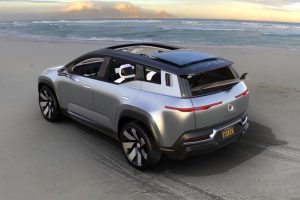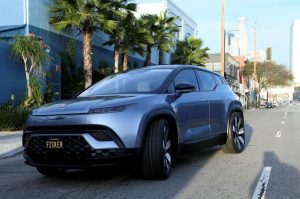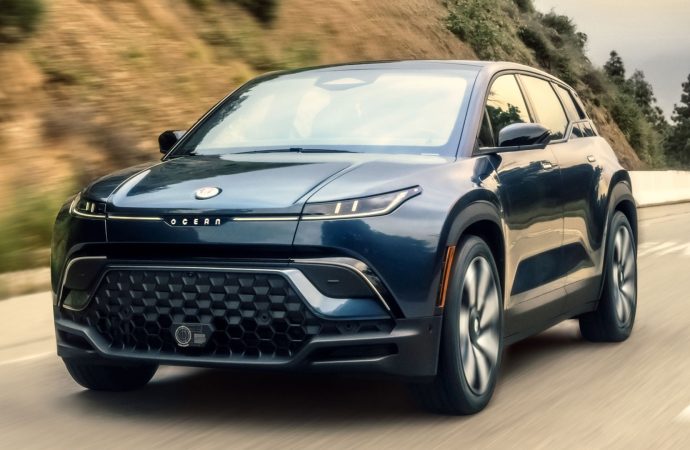Introduction The surge in electric vehicle (EV) adoption has sparked a transformation in the automotive industry. As the world transitions towards sustainable transportation, understanding consumer behavior regarding EV purchases through traditional dealership channels becomes crucial. This article delves into the nuances of consumer perceptions and responses concerning EVs sold via dealership-centric models, exploring factors influencing
Introduction
The surge in electric vehicle (EV) adoption has sparked a transformation in the automotive industry. As the world transitions towards sustainable transportation, understanding consumer behavior regarding EV purchases through traditional dealership channels becomes crucial. This article delves into the nuances of consumer perceptions and responses concerning EVs sold via dealership-centric models, exploring factors influencing their decision-making process.
Shift in the Automotive Landscape
The traditional dealership model has long been the cornerstone of automotive retail, but with the rise of EVs, consumer expectations are evolving. Unlike conventional vehicles, the complexities of EV technology, charging infrastructure, and environmental concerns add layers to the consumers’ decision-making journey. Research shows that customer experiences and perceptions within dealership environments significantly impact purchasing decisions, making it imperative to comprehend their responses within this context.
Factors Influencing Consumer Perceptions
Educational Resources: Dealerships play a pivotal role in educating consumers about EVs. The provision of comprehensive information regarding technology, range, charging infrastructure, and cost savings becomes vital in shaping consumers’ perceptions positively.
Test Drive Experience: Offering test drives allows consumers to experience the unique attributes of EVs firsthand. Factors like acceleration, handling, and range significantly influence consumers’ confidence and likelihood of purchase.
Charging Infrastructure Awareness: Lack of charging infrastructure remains a concern for potential EV buyers. Dealerships must address these concerns by informing customers about available charging networks and home charging solutions.
Pricing and Incentives: Consumer perceptions of EV affordability are influenced by pricing, incentives, and long-term cost savings. Dealerships’ transparency regarding total cost of ownership, tax incentives, and potential savings in maintenance and fuel costs can positively impact consumer perceptions.

Image By:https://cars.usnews.com
Consumer Responses and Challenges
Lack of EV Knowledge: Despite growing interest, consumers often lack sufficient knowledge about EVs, relying heavily on dealership staff for information. Dealerships must invest in training their personnel to provide accurate and persuasive information.
Resistance to Change: Some consumers remain skeptical about transitioning from conventional vehicles to EVs due to range anxiety, charging concerns, or perceived inconvenience. Addressing these concerns through effective communication and personalized solutions is crucial.
Inconsistent Customer Experience: Variations in the quality of service across different dealerships can affect consumer perceptions. Standardizing and enhancing the EV buying experience can build trust and confidence among consumers.
Strategies for Enhancing Consumer Engagement
Education and Training: Dealership staff should undergo comprehensive training to become EV experts, enabling them to address consumer queries effectively and build trust.
Personalized Solutions: Offering personalized solutions, such as home charging installations or providing information about local charging infrastructure, can alleviate consumer concerns.
Transparent Pricing and Incentives: Clearly outlining the total cost of ownership and potential savings through incentives and rebates can influence consumer perceptions positively.

Image By:https://cars.usnews.com
Conclusion
As the automotive industry navigates towards a sustainable future, understanding consumer responses to dealership-centric EV sales is pivotal. Dealerships serve as key touchpoints influencing consumers’ perceptions and behaviors towards EV adoption. By addressing consumer concerns, providing comprehensive information, and enhancing the overall buying experience, dealerships can play a pivotal role in accelerating EV adoption and contributing to a more sustainable transportation ecosystem. The success of dealership-centric EV sales relies on effectively addressing consumer perceptions, enhancing the buying experience, and fostering confidence in the transition to electric mobility.

















Leave a Comment
Your email address will not be published. Required fields are marked with *